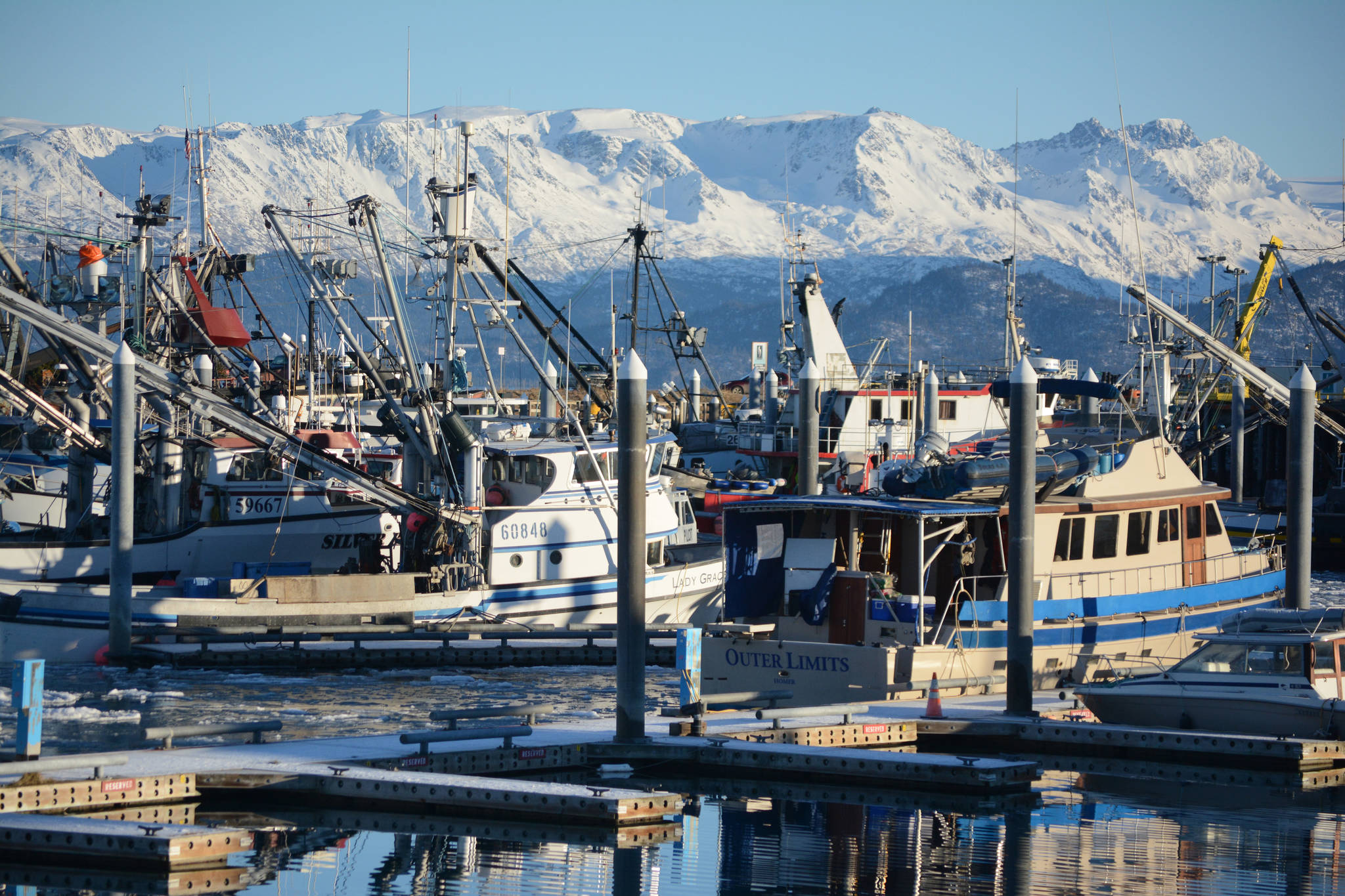As another year draws to a close, the seafood industry seems to be facing even more uncertainty than usual, with some groundfish stocks cratering, salmon runs behaving in historically strange ways, trade wars with China imposing some tariffs on a variety of products, and the state being on the forefront of climate change.
The year started out with a Pacific cod quota cut of 80 percent in the Gulf of Alaska, an unexpected drop after a strong year class from 2012 suffered unusually high mortality due to a warm period from 2014 to 2016.
Overall, GOA groundfish quotas dropped 21 percent.
Bering Sea crabbers started the year with a 19.5 million-pound opilio quota that proved difficult for some boats, with scratchy fishing and bad weather that cost a few boats their windows. However, prices over $4 per pound for both bairdi Tanner and opilio crab brought some smiles.
Jan. 15 saw 55 boats head out in Kodiak to fish for bairdi Tanner crab, the 400,000-pound quota the first fishable biomass since 2013, a fishery that lasted 4 days.
The halibut season got off to a late, rocky and confusing start when the International Pacific Halibut Commission was unable to agree on catch limits for the season, leaving the U.S and Canadians to set their own limits based on the previous year’s quotas.
By regulation if the parties cannot agree then the previous year’s quotas stay in place, but both sides did agree that the quotas needed to come down from a conservation standpoint.
The season opened as scheduled on March 24, at least two weeks later than recent start dates, and early pre-season reports had the quota for Alaska waters anticipated to drop by as much as 22 percent; however, when the final ruling came out only four days before the season opening, quotas coastwide dropped by 10 percent on average, with some areas down more than others.
In addition to lower quotas, halibut fishermen saw lower prices all season long, as an eastern Canadian halibut fishery took a bite out of the East Coast market, dropping dock prices in Alaska by as much as $2 per pound in most cases from the previous year.
The Sitka Sound herring season fell 8,202 tons short of the 11,128 ton quota, mostly due to fish that were too small for market requirements and some unusual spawning behavior, but the Togiak seine fishery caught nearly all of their 16,829 ton herring quota.
Salmon season brought little comfort for most of the state, with Bristol Bay sockeye being the only real bright spot with a record run of 62.3 million fish and an ex-vessel price that was 142 percent above the most recent 20-year average.
Other areas did not fare so well. Chignik did not have a single seine opening, and state-wide harvests fell 31 percent below the preseason forecasts.
Run timing complicated things in other areas, such as in Upper Cook Inlet, where over half of the Kenai River sockeye run came in August, only the second time that has happened; Copper River sockeye returned in three distinct pulses, the third coming in mid-July; and even in Bristol Bay things were wacky, with the Kvichak River run peaking 10 days later than normal.
As boats headed back to the Bering Sea for the fall Bristol Bay red king crab fishery opening October 15, they faced a quota that was down 35 percent from last season, at 4.3 million pounds.
Last season was already the smallest quota since 1985.
Biologists had expected the spring survey to show reduced stocks, but the drop was even greater than anticipated.
However, when the fleet heads back out after the Christmas break to start on the opilio crab quota, they will be working on a quota that is up 45 percent, at 27.6 million pounds.
Cristy Fry can be reached at realist468@gmail.com.

